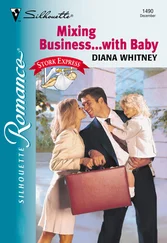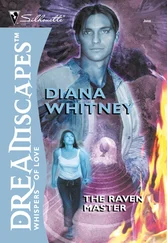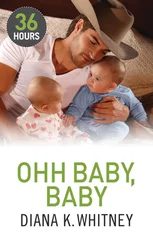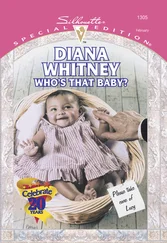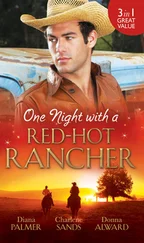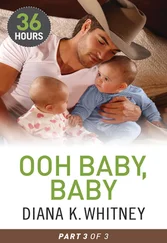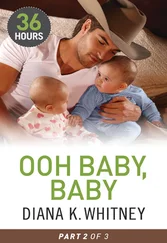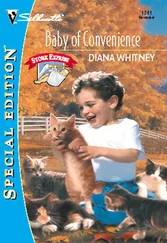“That’s enough.” Speaking sternly enough to startle his daughter into attention, Richard enforced his position. “It’s okay for you to feel bad, and it’s okay for you to be angry, but it’s not okay for you to say mean things about people even when they’re not around to hear them.”
“But it’s not fair,” Lissa wailed. “Ragsy is my dog.” Pulling away from her father’s embrace, the child leapt down, kicked at a cardboard blueprint tube lying beside the drafting table. “He was real happy before she showed up, and now he won’t eat or play or do anything at all. He’s no fun anymore, and it’s all her fault.”
After emphasizing her pique with another kick at the hapless mailing tube, Lissa spun on her heel and marched out. A moment later, her bedroom door slammed.
Richard pushed away the contract file with which he’d been working, leaned back on his stool and rubbed his eyelids until they stung. As annoyed as he was with his father-in-law’s interference, he still couldn’t blame Lissa for feeling helpless and frustrated, particularly when he felt that way himself.
Ever since C. J. Moray’s less than fortuitous appearance, Rags had shown every symptom of an animal grieving himself sick. The poor little dog had eaten nothing for four days now, and even the neatly packed box of toys, bowls and other doggy belongings that had mysteriously arrived on the front porch hadn’t helped dissuade the animal’s melancholy mood. If anything, the pooch seemed even sadder, carrying the pathetic Frisbee in his mouth as he wandered from room to room, then returned to his vigil at the front window and stared dolefully outside as if awaiting his mistress’s return.
Yesterday Richard had decided a romp in the neighborhood park would perk Rags up. The moment the front door opened, the dog had shot to the very spot in the front yard where C. J. Moray had been standing, then followed her scent to the curb. Had the animal not been leashed, there was no doubt in Richard’s mind that Rags would have chased the scent as far as possible in pursuit of the mistress he had never forgotten, and still clearly adored.
Rags was obviously heartbroken. Richard feared the stoic little pooch would grieve himself to death, and was convinced that something had to be done. He’d already formulated a plan. Lissa wouldn’t like it, of course.
But she’d like the alternative even less.
The dance studio was situated in a tidy corner of a bustling strip mall, the kind where neighborhood residents gathered for groceries, a quick video rental, or to peruse the aisles of a local bookstore. Richard parked, paused outside the studio’s glass front to read a few posted flyers announcing beginning ballet lessons, tap dance classes and the like.
He swallowed a guilty twinge. Lissa had always wanted to take ballet lessons. The request had been denied, as had her desire to participate in playground softball and other such athletic endeavors, because Richard was worried such physical exertion would exacerbate her asthma.
Lissa’s asthma was no joke. She’d nearly died twice, and had been hospitalized more times than Richard could count. Doctors hoped the condition would ease as she matured, but so far there’d been no perceptible improvement. Attacks came on suddenly, without warning, and could escalate to life-threatening proportions with hideous speed. It was a terrifying situation, not for the faint of heart.
Lissa’s mother hadn’t been able to deal with the terror, the helpless horror of watching her only child slip to the edge of death time and time and time again. Richard had understood his wife’s fear. He’d even understood her guilt, and the secret sense of failure at having given birth to a frail and sickly child. What Richard hadn’t understood, still couldn’t understand, was why a mother, any mother, would give up on her own child by giving up on herself.
Despite years of emotional withdrawal during which Richard and his wife had become virtual strangers, he’d been nonetheless shattered by her death.
Now he gazed into the glass window, his own reflection revealing the bitterness of that memory. It hurt. It would always hurt. He’d failed as a husband. He was determined not to fail as a father.
Squaring his shoulders, he yanked open the dancestudio door and walked into chaos.
Beyond the partitioned entry, blaring music vibrated the walls, the floor and his back molars. Bongos bonged, cymbals crashed, tambourines tonated in a wild calypso cantata that was part Caribbean reggae and part “Dance of the Sugar Plum Fairies,” with a jarring jab of New Orleans jazz tossed in for good measure.
Richard would have hocked everything he owned for a sturdy set of earplugs.
Above the deafening musical fray was a voice, sharp, firm and familiar. “And one and two... twirl, twirl... hands high, Shelly, reach for the sky...that’s good, very good. And bend, twist, and bend and twist... come on, fairies, high on your toes, stretch those arms...fluid, graceful, hands flutter like fairy wings.”
Sidling along the partition, Richard chanced a peek into the heart of the bustling studio, where over a dozen exuberant youngsters pirouetted through choreographed routines. In the center, a sleek blonde in black leotards accented by a hot-pink-and-fuchsia thong darted around the dancers, clapping rhythm with her hands and occasionally pausing to straighten a child’s saggy shoulder, or lift a droopy chin.
To Richard’s astonishment, the blond instructor paused in the center of the melee, where a young girl in a wheelchair extended swaying arms in the air. “Marty, Susan, take Shelly’s chair now and turn slowly, slowly.... Shelly, hon, keep those arms high, hands graceful...that’s wonderful!” The instructor clapped quickly now, increasing the pace. “The dragon is coming, the dragon is coming! Fairies leap, leap, drop to a crouch. Shelly, cower in fear... turn the chair faster, girls, faster, faster... that’s it, terrific....”
She spun toward the sidelines, where a rhythm section of youngsters perched anxiously on the edge of their seats clutching a variety of tambourines, shakers and bongo drums. “Dragon is—” she pointed at a pale boy with a pair of cymbals held at the ready “—here!”
The youngster slammed his cymbals together with a proud, gap-toothed grin.
“Curtain!” The instructor threw up her arms as the music ceased abruptly. “Wonderful class, you were all just perfect!”
A din of happy voices erupted as children scampered—or rolled—toward a scatter of adults, presumably proud parents, seated in a makeshift gallery of folding chairs surrounding a refreshment table. The rhythm section dropped their instruments, blasted across the room to attack the cookie-and-juice buffet with gusto appropriate to a pack of sweaty, starving prepubescents.
And in the center of bustling activity, C. J. Moray dabbed her face with a towel, listening to the excited ramblings of a small, dark-haired princess who was apparently so enthused by her own performance that she felt compelled to review each step of it in painful detail. Ms. Moray listened as if raptly fascinated, offering affirmative nods and bright smiles that left the little girl puffed with pride, and clearly thrilled.
Under other circumstances the child’s joy would have been mesmerizing, but it was the woman upon whom Richard’s attention was riveted. Her face was flushed and glowing, with damp blond tendrils clinging to her cheeks likes strands of gleaming gold. Eyes like sparkling amber wine, a smile bright as a sun-drenched rose garden, a laugh so husky and melodic that it warmed his blood and sent chills marching down his spine at the same time.
Richard couldn’t take his eyes off her.
Suddenly her smile hesitated, her eyes clouded. A pucker of sensation touched her brow. She looked up, met his gaze, held it. Time stopped. A minute. Two. Ten. He didn’t know, didn’t care. For those moments, those indefinable instants of eternity, nothing else existed but this woman, this incredibly beautiful woman whose mesmerizing gaze sucked the breath from his body, drained the reason from his mind.
Читать дальше

